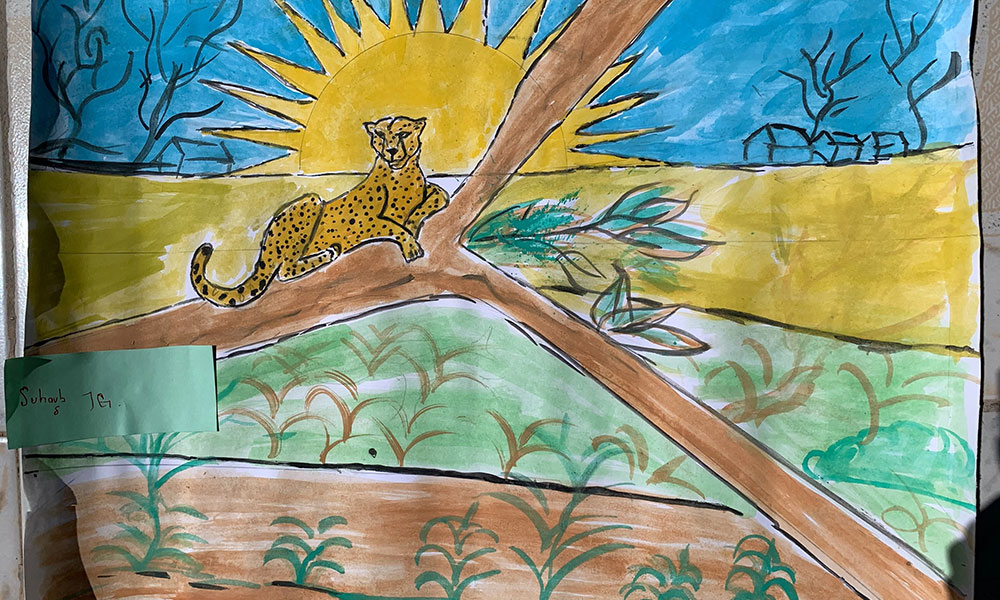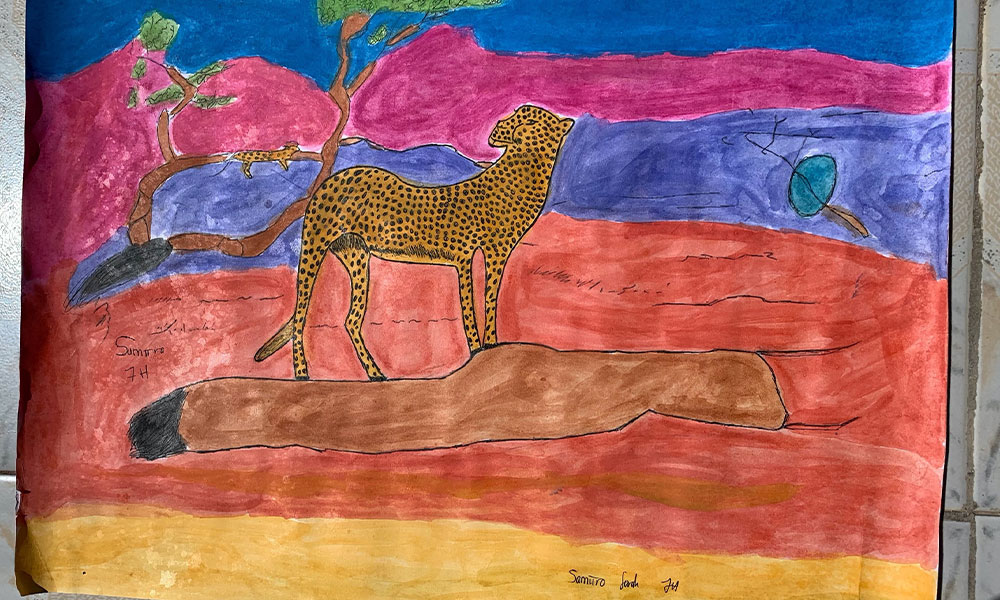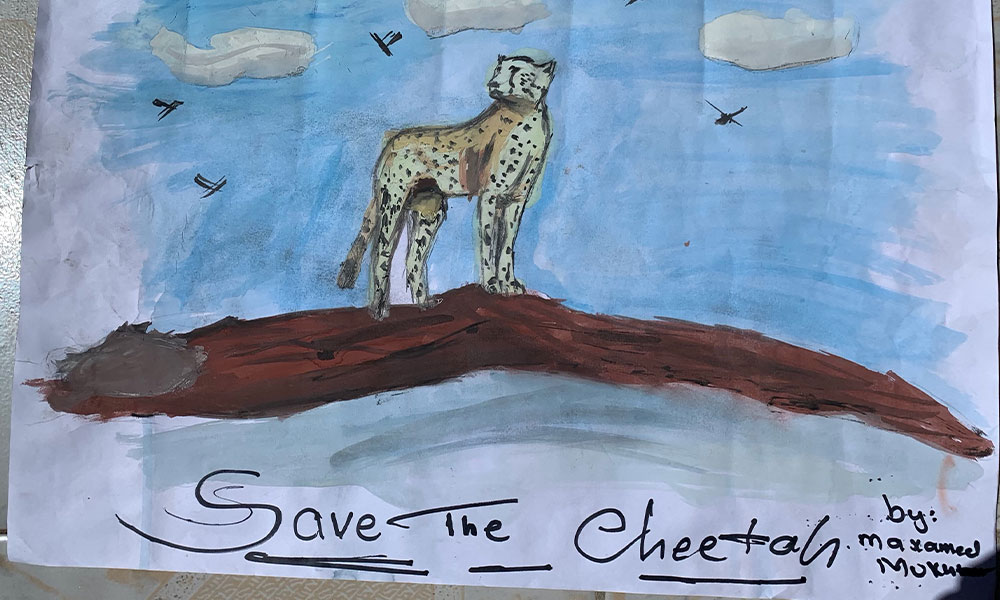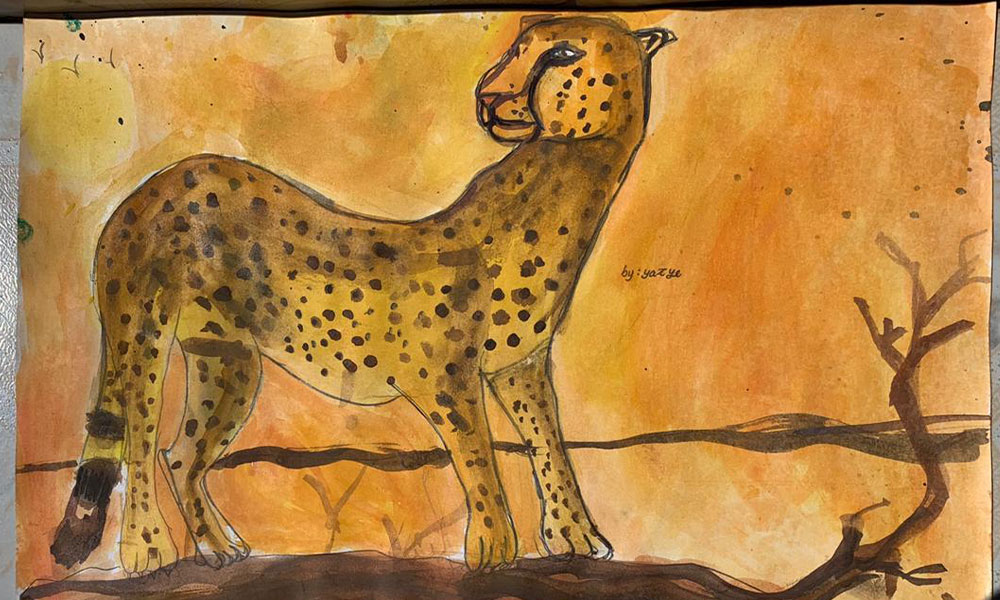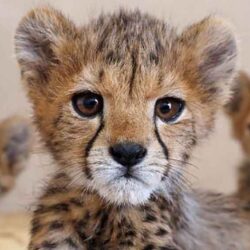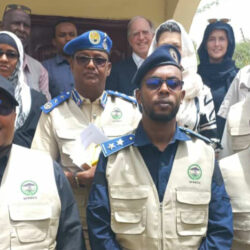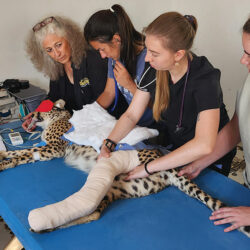CCF and the United Kingdom: Partners in saving cheetahs from the illegal wildlife trade in East Africa
-
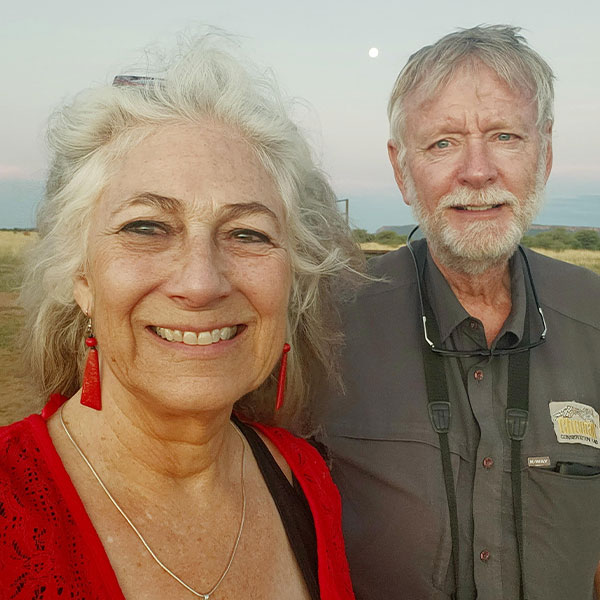
- by Dr. Laurie Marker December 3, 2020
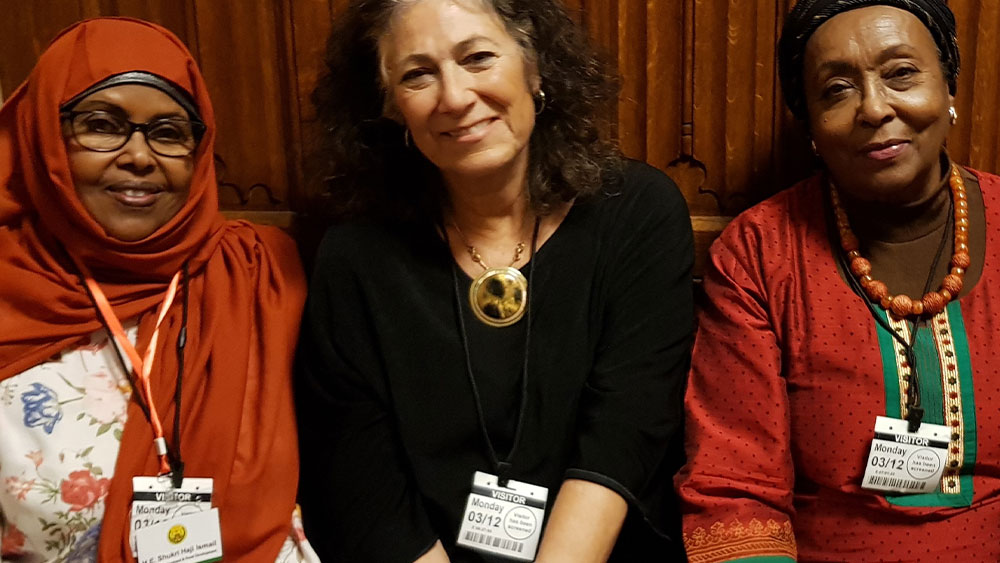
Two years ago, on 3 December 2018, the eve of International Cheetah Day (ICD), I stood before an audience at the House of Commons, UK, speaking on a topic that has become too familiar. The event, Somaliland Beyond Drought: Saving Wildlife and Protecting the Environment, was co-hosted by Zac Goldsmith, then MP Richmond and now Minister for the International Environment and Climate, along with Somaliland’s Mission to the UK. Seated among the audience was Boris Johnson, who took great interest in the problems facing Somaliland and the cheetahs.
Each year, an estimated 300 cheetah cubs are removed from the wild in the Horn of Africa. They are taken to supply the illegal pet trade, with demand emanating primarily from the Arabian Peninsula. Few people realise that most cheetah stolen from the wild to be sold as pets are at best, a loss for conservation; at worst, likely to die. In addition, wildlife trafficking robs communities of their resources and welfare, since illicit activities breed unsafety, which in turn affects a community’s ability to engage in activities such as eco-tourism. This event in the UK two years ago enabled the Cheetah Conservation Fund (CCF) to raise awareness about these issues and others, including the importance of proper rangeland management and integrated livestock-wildlife management in arid landscapes.
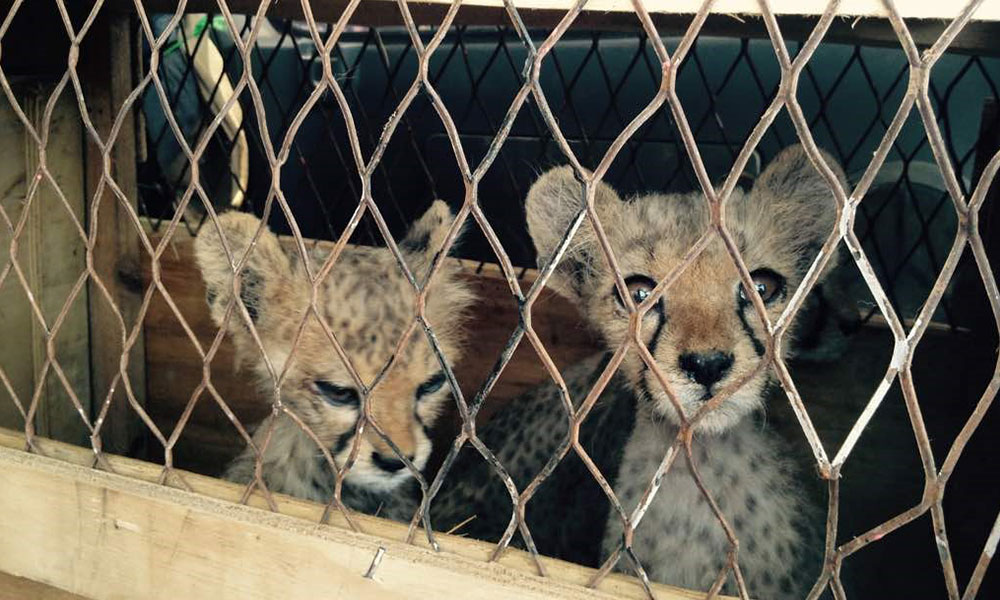
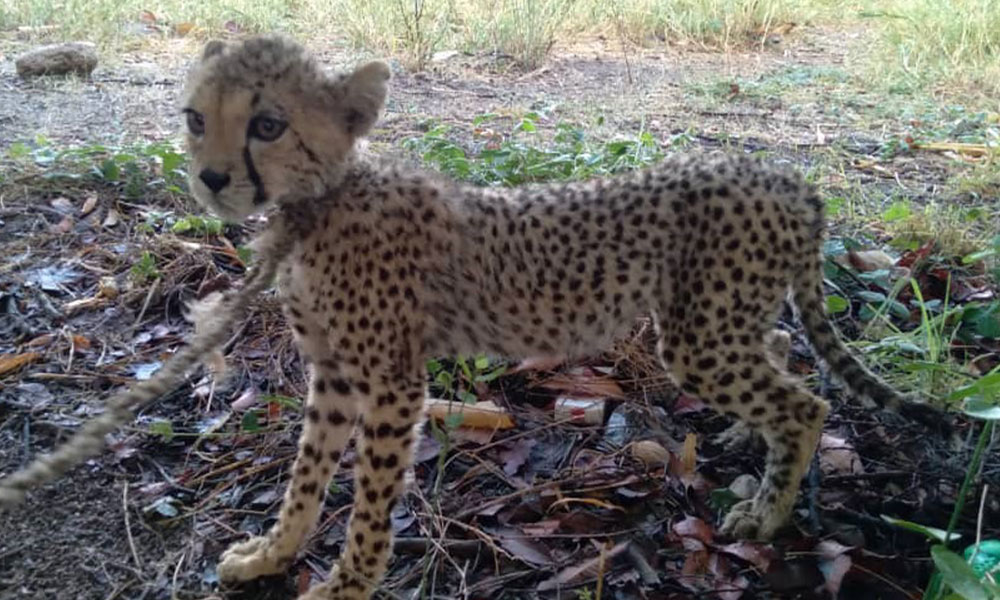
In addition to myself, Somaliland speakers included HE Shukri H. Ismail, Somaliland’s Minister for Environment and Rural Development (MoERD), and Dr Edna Adan Ismail, Director of the Edna Adan Hospital, a non-profit facility that provides health services for the community and training for young professionals. In the past two years, I have come to know both women well, as they have been instrumental in helping bring the illegal trade in wild cheetahs to light. Minister Shukri is the longest-serving female minister in the Somaliland government, working tirelessly with CCF since she joined MoERD in 2013 to crack down on wildlife smugglers. Dr Edna Adan is a force of nature in her own right, the first female Somaliland Minister of Foreign Affairs (2003 – 2006) and a well-known international advocate for Somali women. She is said to be the first Somali female to study in Great Britain, Somaliland’s first qualified nurse-midwife and the first Somali woman to drive. Dr Edna is now one of CCF’s international Ambassadors. I was deeply honoured to be standing next to these women representing the cheetah at the event (see featured photo).
Last year, my organisation, CCF, established CCF Somaliland with international NGO status, based in Hargeisa, the capital of Somaliland. We had our first International Cheetah Day celebration on 4 December 2019 in Hargeisa, sponsored by the UK Foreign Commonwealth Office (FCO), at the Hargeysa Cultural Centre. This year we are doing the same, but with art and music and local participation from secondary school students, and sponsorship provided by CCF UK donors. CCF Somaliland now has an Education Team that gives wildlife presentations in schools, and we are harnessing the creative talents of students to make pictures of cheetahs and their landscape to hang in the Cultural Centre’s Gallery for the month of December. In addition, some local artists will paint live in front of our audiences, and a group of local professional actors will stage a play about the illegal nature of the cheetah pet trade. The event took place today, 3 December, two years from the day I travelled to London to advocate on behalf of the world’s fastest land mammal.
Four of the entries in the CCF’s art exhibition at the Hargeysa Cultural Centre. The art was created by 7th, 8th and 9th graders at Pharo Primary School in Somaliland.
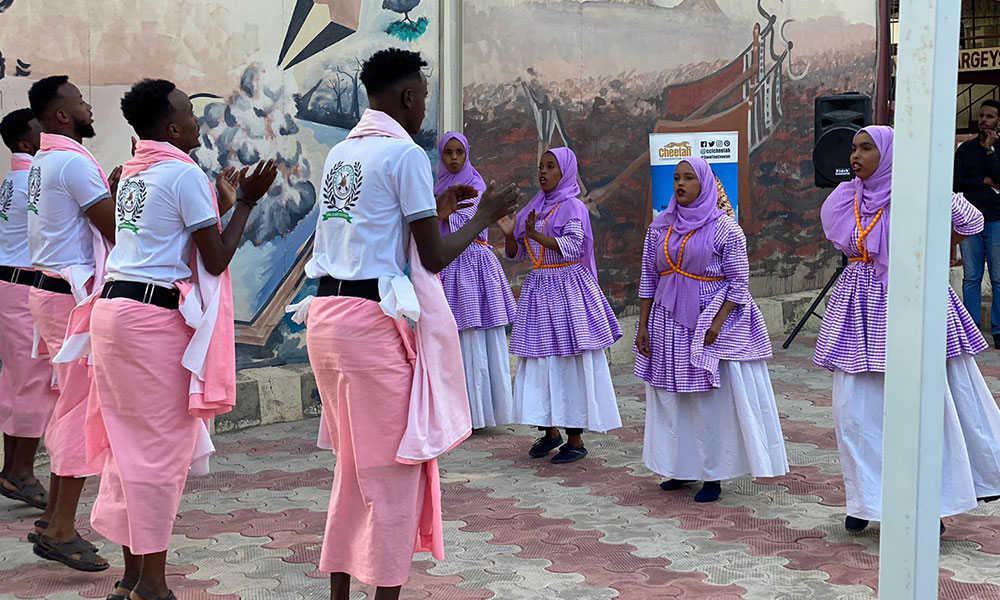
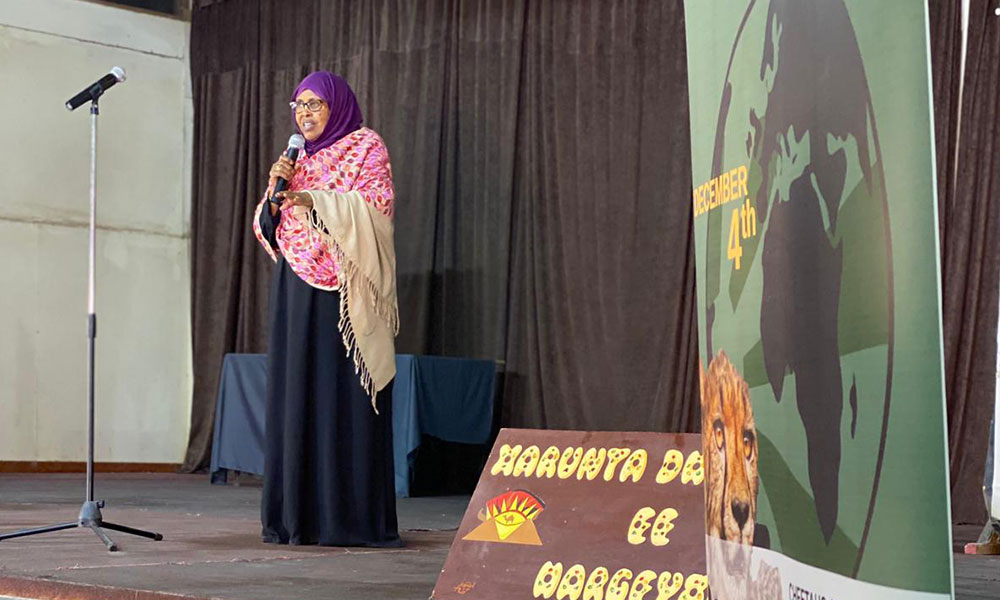
CCF’s fight in the Horn of Africa for this feline icon of speed and elegance has come a long way in just this short time. The number of confiscated cubs CCF is now caring for in Somaliland has more than doubled in the past year, from 25 to 59, and CCF has created three new facilities and a veterinary clinic in Hargeisa to manage cubs MoERD has placed in our care. These cheetahs were caught up in the illegal pet trade and confiscated by Somaliland authorities, and most suffer from health problems due to their time with smugglers. In November, a Somaliland judge convicted eight persons caught smuggling cheetah cubs. The eight are facing jail time and must pay a substantial fine; it is our hope this case will send a strong message of deterrence to would-be traffickers. We view this as tremendous progress for cheetahs, much of which has been made possible by the government and the people of the United Kingdom, our best allies in the fight to save cheetahs from illegal trade.
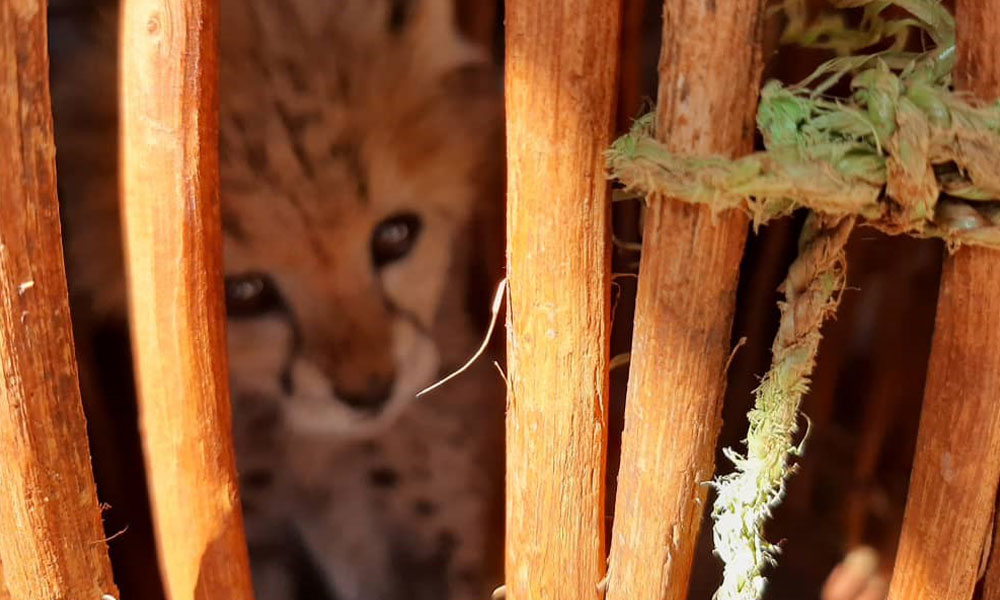
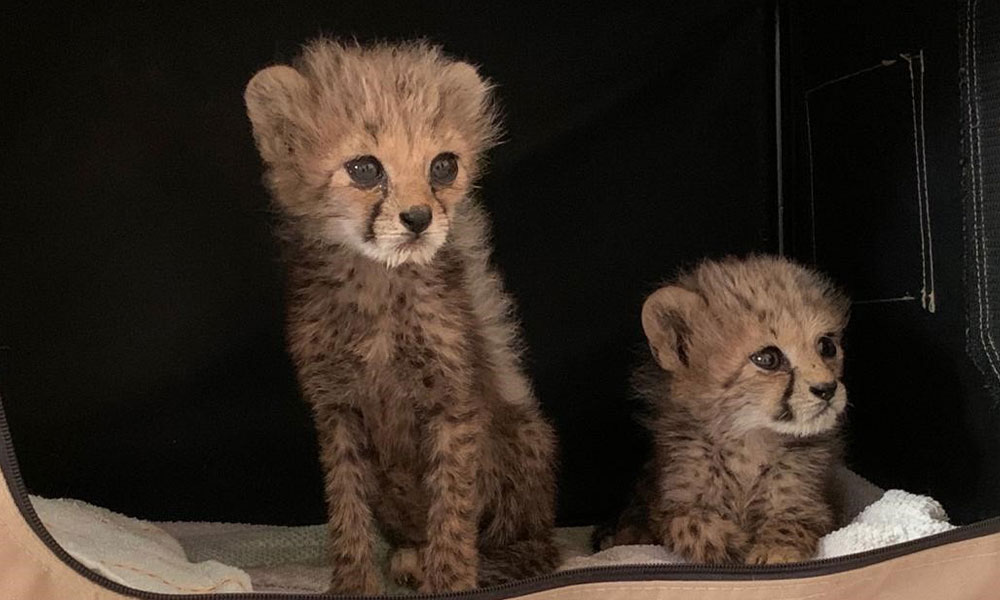
CCF receives direct support from UKAID and the Illegal Wildlife Trade Challenge Fund for our LICIT project (Legal Intelligence/Cheetah Illicit Trade), which builds capacity in law enforcement and creates regional networks to halt wildlife trade in Somaliland, Ethiopia, Somalia and Yemen. CCF’s LICIT partners are International Fund for Animal Welfare (IFAW) and Legal Atlas. Equally, if not more important, is the indirect support CCF receives through the Somaliland Development Fund, a collaborative effort between the governments of the UK, Denmark and Netherlands to deliver critical infrastructure projects in Somaliland. Highways that link remote regions with cities, port development projects, hospitals – these things make it safer and more feasible for CCF and organisations like ours to impact the situation on the ground where it matters most.
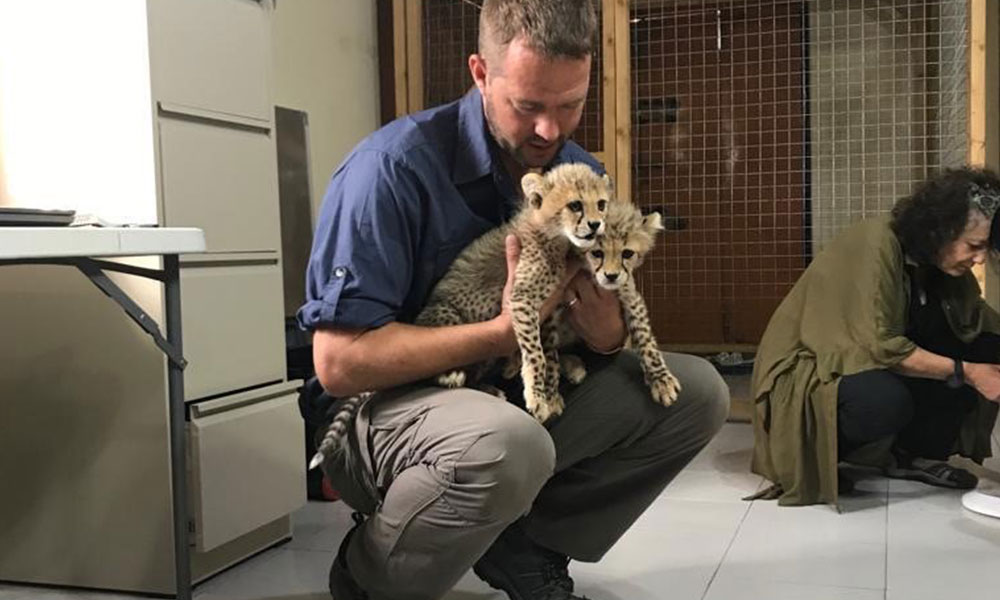
For cheetahs caught up in illegal wildlife trade, this often means rural areas with little to no infrastructure. It is in these remote areas where CCF researchers and community organisers need to be working, and it is where training for pastoral livestock farmers is most needed. Because of the commitment from the governments of the UK, Denmark and the Netherlands, CCF believes it will be possible to one day soon deliver our research, education and conservation programmes for the cheetah throughout Somaliland, and it is our goal to save the Soemmeringii (Somali) cheetah, the Northeast African subspecies, from local extinction.
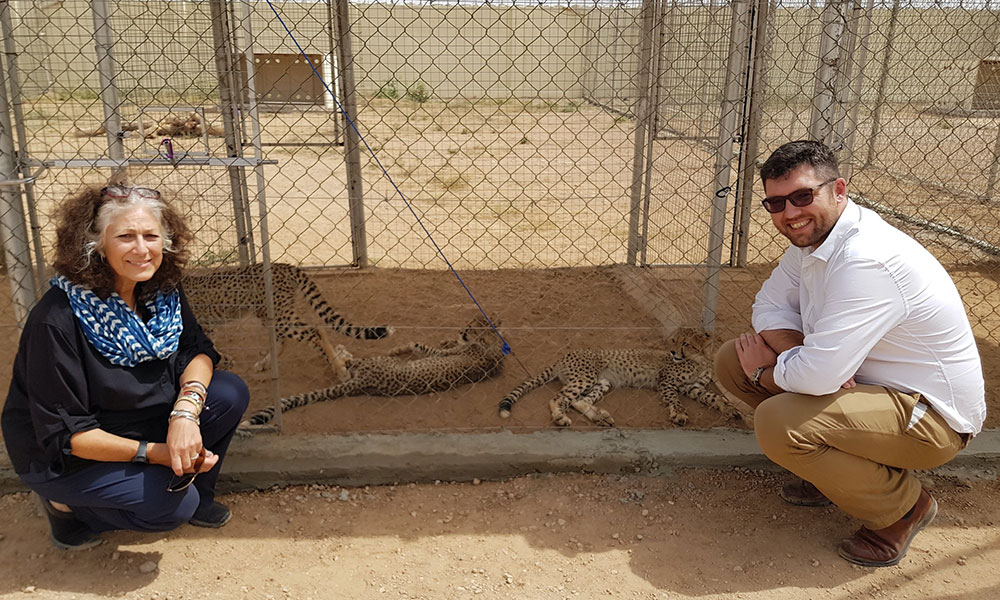
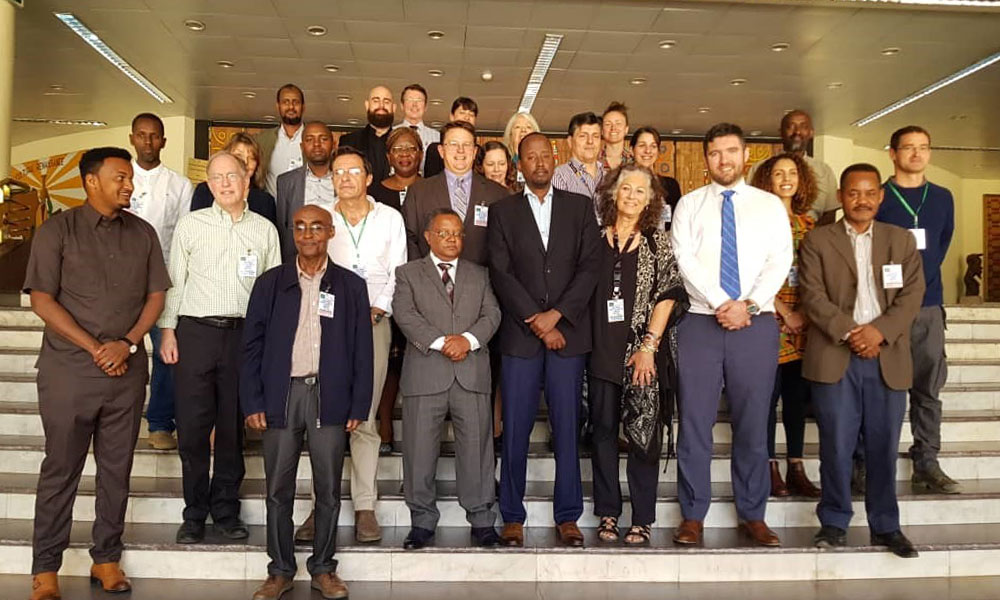
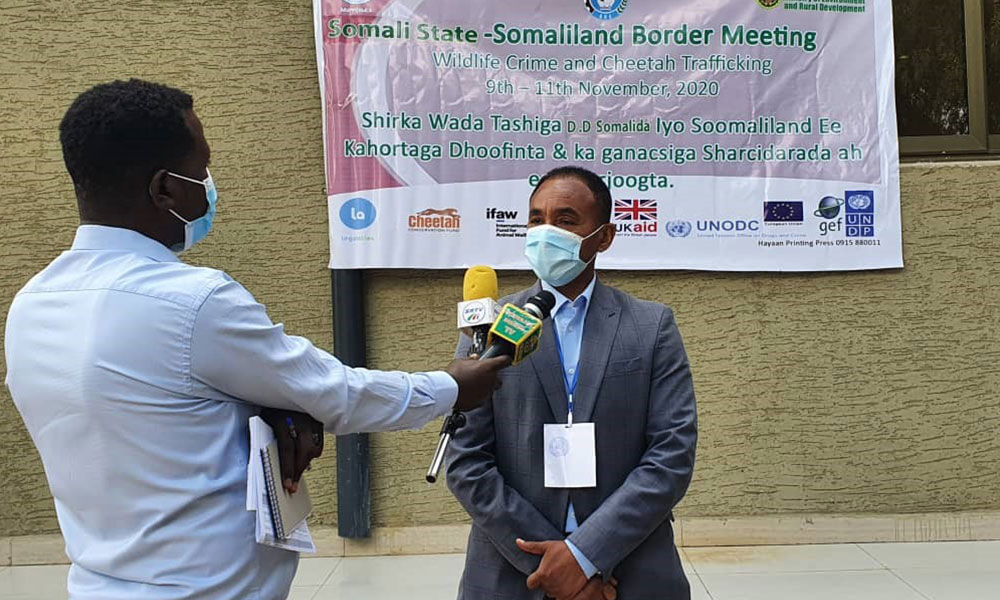
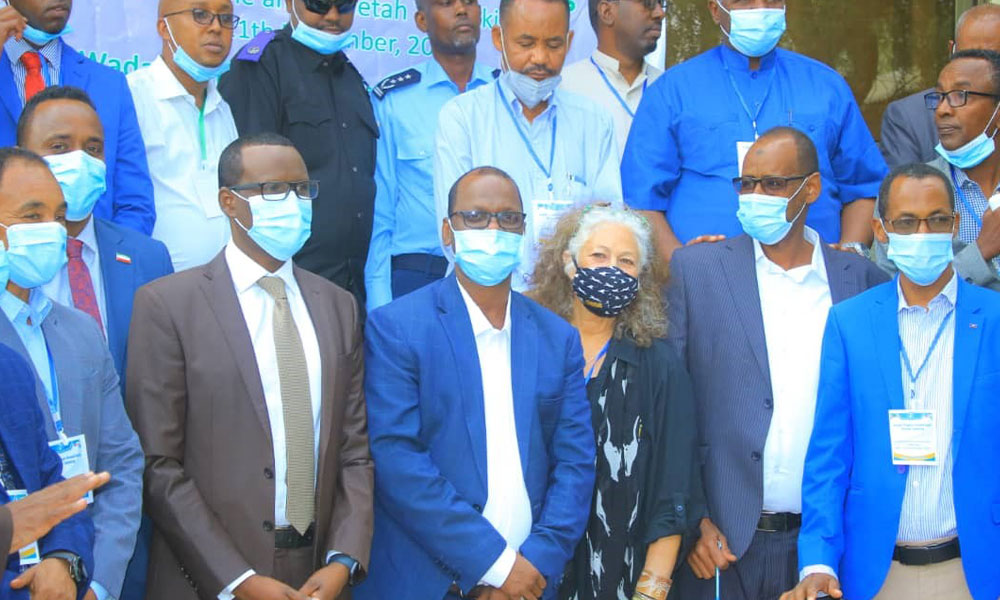
For this and all the support cheetahs receive from the UK, we are most grateful. International Cheetah Day is an occasion to celebrate the species and raise awareness for its plight, but it is also a day to take stock of our success and give thanks where it is due. Without the support of the UK, CCF and our Somaliland government partner, MoERD, would not have achieved this much progress.
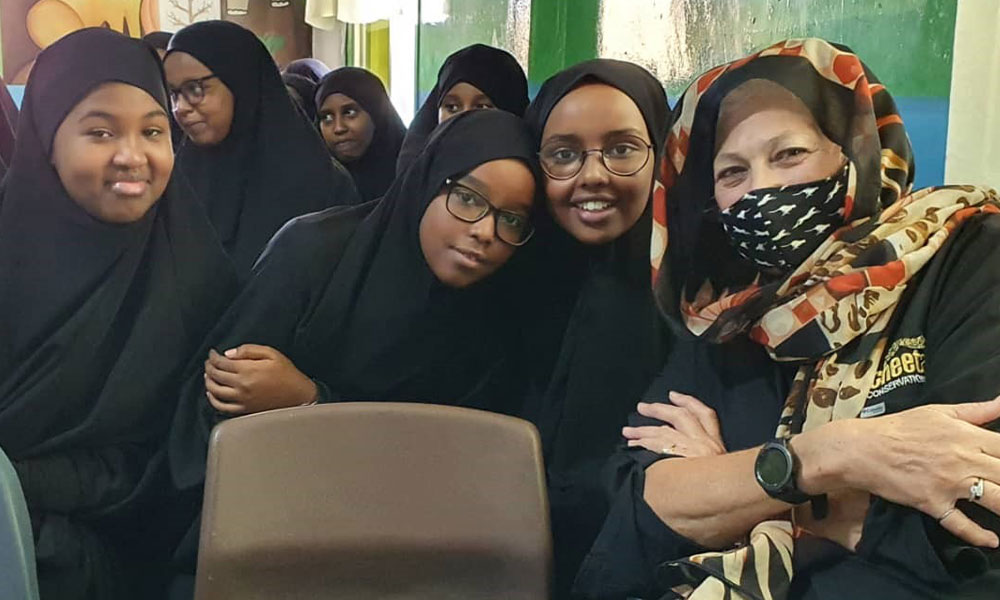
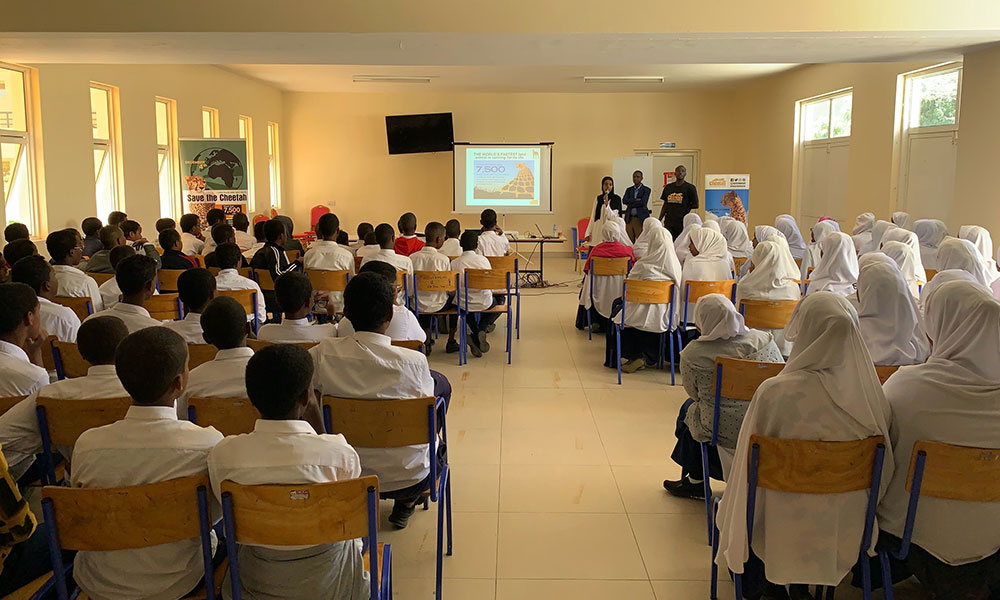
International Cheetah Day also serves as a reminder of how much work is yet to be done. With fewer than 7500 cheetahs left in the wild and the species on a swift decline, there are only a few more years to act before we lose the species in East Africa and the Horn of Africa forever. Please talk with your friends, family and constituents on December 4th. Not only is this amazing species the fastest land mammal, is one of the oldest of all the big cats; cheetahs have been with us for millions of years.
We cannot let cheetahs slip into extinction on our watch.
Please join us now in this fight, and Happy International Cheetah Day!
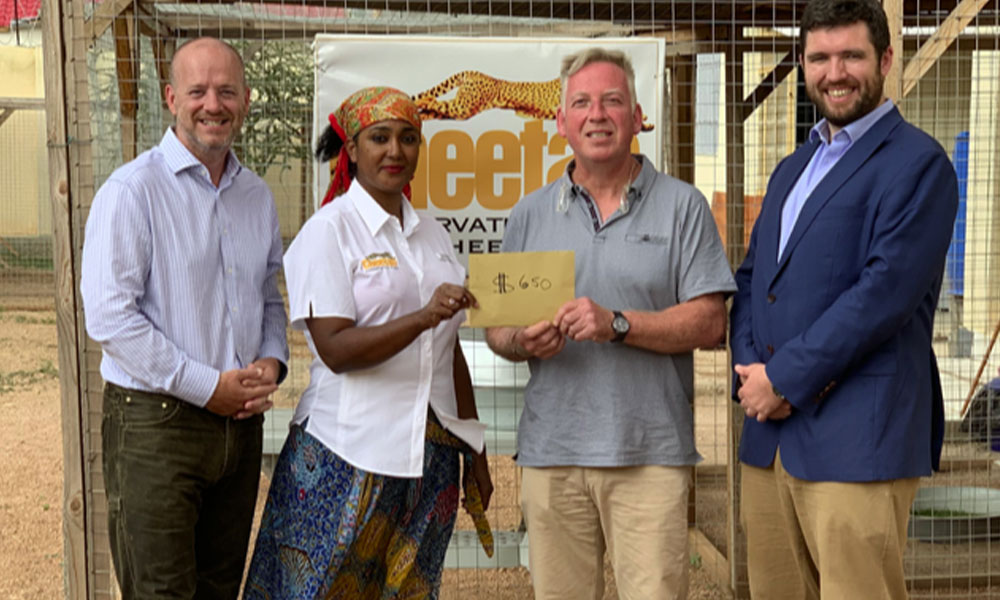
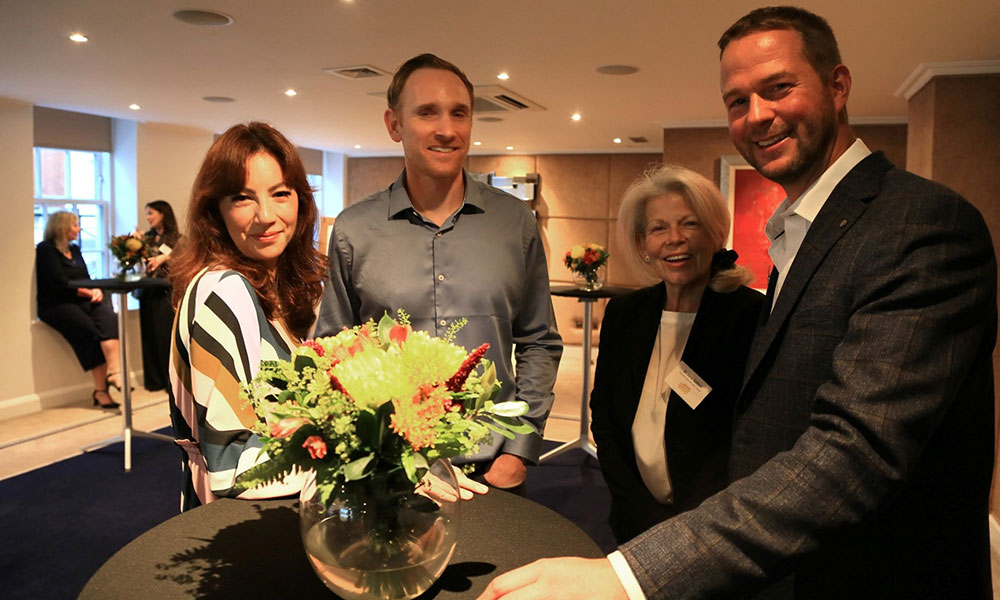
About International Cheetah Day
Dr Laurie Marker is an internationally recognized expert on the cheetah. She designated 4 December as International Cheetah Day in remembrance of Khayam, a cheetah she raised from a cub in 1976 at Wildlife Safari in Winston, Oregon. Dr Marker brought Khayam to Namibia to determine if captive-born cheetahs could be taught to hunt. Their efforts were successful and eventually the pair returned to Oregon. But during this trip, Dr Marker witnessed Namibian farmers removing wild cheetahs from the landscape as a perceived threat, between 1980 and 1990 over 8,000 cheetahs were killed by Namibian farmers. In 1990, she launched CCF in the newly-formed nation of Namibia to mitigate threats to the species in the wild, including conflict with livestock farmers, shrinking habitat, loss of prey, fragmentation and illegal wildlife trade. Because of her interactions with Khayam, Dr Marker dedicated her life to becoming the cheetah’s champion, and for this reason, she chose Khayam’s birthday to honour the species.
CCF’s International Cheetah Day Conservation Passport, Activity Packet, cheetah photos, videos and social media links can be downloaded for free at www.cheetah.org/international-cheetah-day/ or www.internationalcheetahday.com.
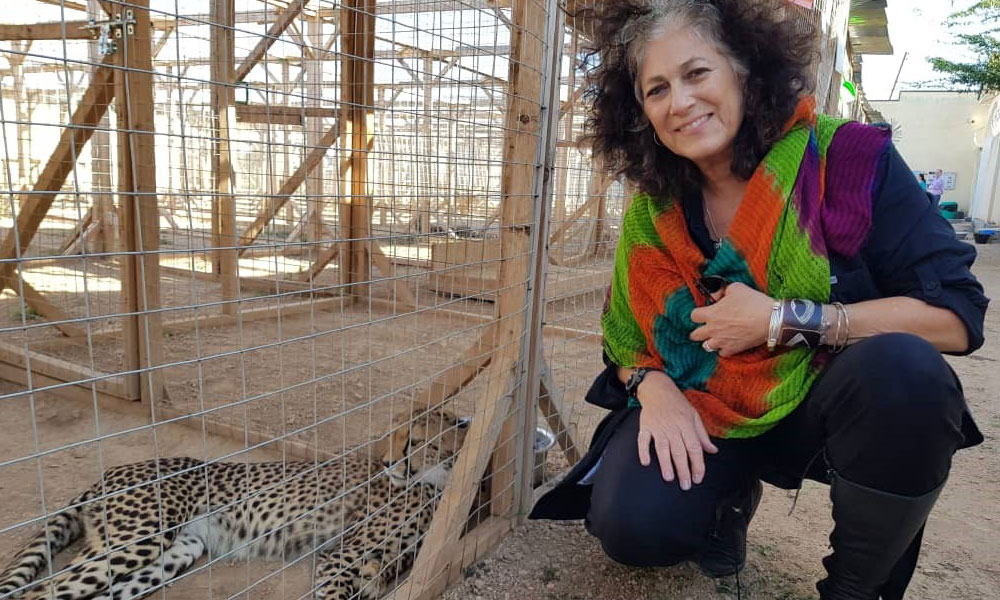
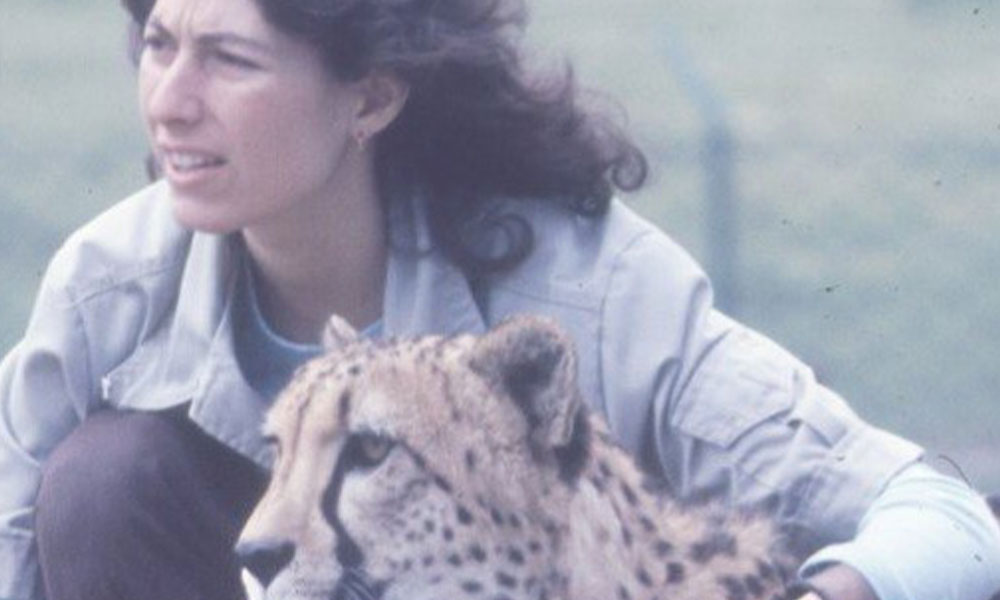
Related Reading
-
June 12, 2024
Continuation Assigned Task is National Obligation -
March 8, 2023
Support the Cheetah Rescue and Conservation Centre

